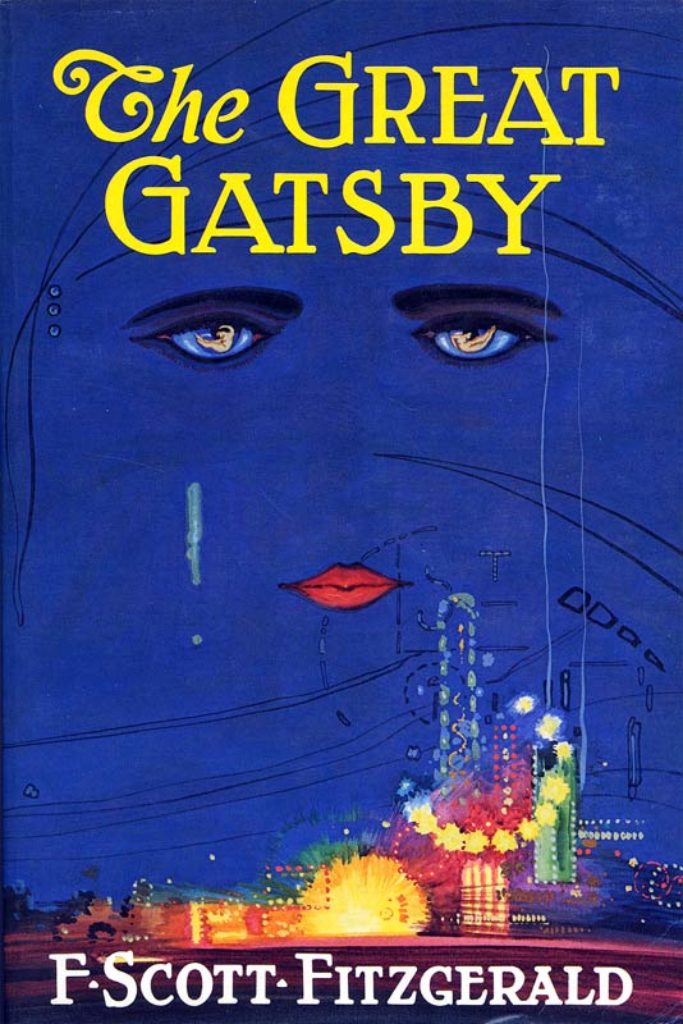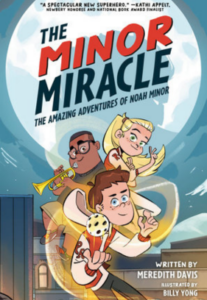After graduating from college and serving in the first World War, Nick Caraway, the narrator of this story, gets a job as a bonds broker in New York City. He rents a bungalow outside of the city, on the less fashionable side of Long Island Sound called West Egg. His second cousin Daisy who lives with her husband, Tom, in East Egg is unhappy in her marriage, but she enjoys being rich. Daisy introduces Nick to Jordan Baker, a famous golf star, but Jordan has a problem with lying.
Nick travels to work by train. One day Tom introduces Nick to his mistress, Myrtle Wilson, who is married to a mechanic in the area. They go to the city on the train and end up at an apartment Tom owns. Nick meets the neighbors, and they all get drunk.
Nick is eventually invited to one of the many parties thrown by his neighbor Jay Gatsby. Nick finds Jordan at the party and decides that he doesn’t mind her dishonesty, even though he is a very honest person. Before he becomes involved with her, Nick decides he must first break off his relationship with a girl back home.
Gatsby, as everyone calls his neighbor, changed his name from James Gatz when he was 17. He is extremely wealthy, and there are rumors about his background, but no one knows exactly where he’s from or how he got his money. Nick later learns that Gatsby worked for Dan Cody, who made millions, and he was promised $25,000 at the man’s death. Gatsby never received a penny, though, because Cody’s wife finagled the situation. The story hints that Gatsby is a bootlegger.
Gatsby throws extravagant parties most nights during the summer. Rich and famous people come from all over the state to attend. Gatsby’s parties are so well known that one day a reporter appears on his porch and asks for a comment. The man doesn’t know exactly who Gatsby is or what he does but, because his name is bandied about by all the right people, the reporter believes he’s on the edge of something newsworthy — though he has no idea what that might be.
Gatsby and Nick slowly get to know each other. Jordan tells Nick how Gatsby used to know Daisy before she married Tom. Gatsby is still in love with Daisy, and he asks Nick to invite Daisy over to Nick’s house for tea. When Nick does, Gatsby and Daisy slowly become reacquainted, first at Nick’s house and then at Gatsby’s. Gatsby has waited five years to see Daisy again; he has to adjust his thoughts to the reality of her presence.
Daisy and Tom are invited to one of Gatsby’s parties. Daisy is fascinated by it, but she doesn’t seem to have a good time. Soon after, Gatsby no longer throws parties and lets his staff go. He hires a tougher, smaller crowd to take care of his house so Daisy can visit in the afternoons.
Nick and Gatsby are invited to Tom’s house one afternoon. When Tom leaves the room, Daisy kisses Gatsby and says she loves him. Jordan says that Tom is talking to his mistress, Myrtle. In the midst of this, Daisy and Tom’s daughter is introduced to the guests.
Later, Nick, Gatsby, Tom, Jordan and Daisy go for a drive to the city. When they fill up with gas, Nick learns that Mr. Wilson (Myrtle’s husband) is upset with his wife. He thinks she has been having an affair, but he doesn’t know with whom. At the same time, Tom realizes that Daisy has a life beyond her life with him. He doesn’t like this idea.
Once in the city, Nick, Jordan, Tom, Gatsby and Daisy rent a parlor at The Plaza and make mint juleps. Gatsby tells Tom that Daisy has never loved him. Tom responds that Daisy loves him (Tom) — only sometimes she is foolish, so he goes off with a mistress. But whenever his time with other women comes to an end, he always comes back to her and tells her he loves her. Tom talks about Gatsby as a commoner because of how he made his money, and Daisy wavers in her conviction that she has only loved Gatsby. Tom orders Daisy and Gatsby to drive home together. As they do, Daisy, who is driving, drives so fast that she hits Myrtle, when Myrtle runs into the road to stop the car. Daisy does not stop to see what happened to Myrtle, but continues driving.
No one knows who hit and killed Myrtle, except for Gatsby, Daisy and Nick. Tom and Jordan suspect that Gatsby is the culprit. Tom tells Mr. Wilson that the car that hit Mrs. Wilson belongs to Gatsby. Because of this, Mr. Wilson believes that Gatsby has been having an affair with his wife and has killed her. He goes to Gatsby’s house and shoots him. Gatsby falls into his pool and drowns. Then Mr. Wilson kills himself.
In the end, only Gatsby’s father, Henry C. Gatz, Nick and one business “friend” attend the funeral. Tom and Daisy leave town quietly. Nick is disgusted with those he thought were his friends. He breaks off his relationship with Jordan and wants nothing to do with the rich.











